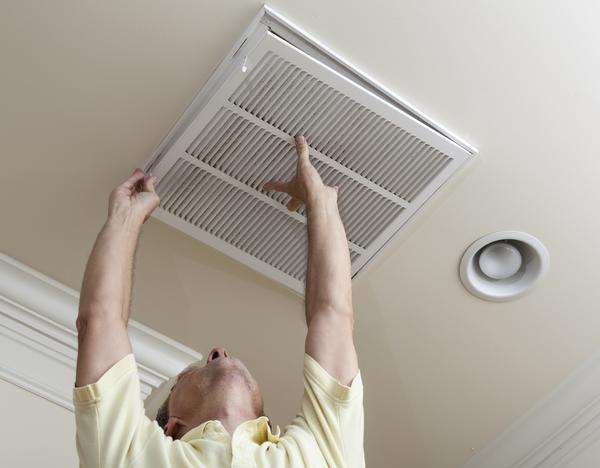Is Closing My Air Vents Bad?

There's a common myth that closing vents in vacant rooms will help you save energy, but that's far from the truth.
In fact, keeping air vents closed can potentially damage your HVAC system, drive up your energy bills, and end up costing you more in the long run.
To help debunk this myth, in this article we’ll explore:
Although it may be disappointing to hear that closing vents won’t save energy, there are ways to improve your HVAC system’s efficiency. Namely, annual maintenance, which helps prolong the lifespan of your equipment and keep energy costs as low as possible.
Want to save on energy costs? Join MSP’s Total Comfort Club!
If you’re looking to maintain your heating and cooling system for maximum comfort and energy savings, there’s no better way than with annual maintenance. At MSP, our Total Comfort Club provides comprehensive fall and spring tune-ups that will decrease your energy bills by up to 30%. In addition, members enjoy discounts on repairs, free service calls, and more. All for just $8.25/month!
Give us a call today at (651) 228-9200 and see why we’re Minneapolis-St. Paul’s most trusted name in HVAC maintenance, repairs, and installations since 1918.
What Happens When You Close Your Air Vents
When you close vents in certain rooms or areas of your home, it creates an imbalance in your system's airflow. The air that would normally flow through those vents is now redirected to other areas of your home, which can cause increased pressure in your ductwork.
When there is increased air pressure in your HVAC system's ductwork, several things may occur depending on the specific circumstances. Here are a few possible scenarios:
- Reduced airflow: When there is increased air pressure in the ductwork, it can cause a reduction in airflow through the vents. This is because the increased pressure can make it harder for the air to move through the system.
- Leaks: If there are any leaks or gaps in the ductwork, increased air pressure can cause air to escape from these areas, reducing the efficiency of the system.
- Damaged components: Increased air pressure can cause damage to the components of the HVAC system. For example, it can cause the ducts to expand or contract, which can lead to cracks or other damage.
- Overheating: If the air pressure in the ductwork is too high, it can cause the HVAC system to overheat, which can lead to system failure and potentially costly repairs. Specifically, your furnace’s heat exchanger, which can crack under pressure. If your warranty has expired and you need a new one, you’ll likely end up needing a full system replacement.
To avoid these problems, it’s important to have your HVAC system regularly maintained and inspected by a qualified professional. They can identify any issues with the ductwork and make necessary repairs to ensure that your system is operating efficiently and effectively.
Long-Term Consequences of Closed Air Vents
If you’ve closed a vent or two in your home for a short while, be it accidentally or unintentionally, it’s not the end of the world. But keeping air vents permanently closed can be problematic in the long-run. Let’s take a look at some of the consequences.
Increased Energy Bills
First things first, we need to break the myth that closing air vents will lower energy bills. Keeping air vents in vacant rooms closed will not increase the efficiency of the HVAC system. More often than not, it'll do the exact opposite.
Ductwork is already prone to losses, so leaky ducts will only compound inefficient operations and put strain on your HVAC system. As it works overtime to regulate the temperature inside your home, you'll end up spending more money on your heating and cooling bills throughout the year.
Decreased Comfort
Closing air vents in certain rooms can result in uneven heating and cooling throughout your home. Some spots might be warmer or colder than others, which can be uncomfortable, not to mention inefficient.
Keeping air vents open ensures that warm or cooled air will be properly distributed throughout the entire home. Rooms will also cool down or warm up much more quickly, which gives you more precise temperature control.
Higher Chance of Breakdowns
HVAC systems are designed to operate within specific pressure ranges, and exceeding these limits can lead to a variety of problems.
As we mentioned above, increased pressure can cause leaks or damage to the ductwork, leading to reduced efficiency and increased wear and tear on the system. But it can also cause issues with the HVAC equipment itself, such as damaged motors, bearings, or other components. In extreme cases, increased pressure can even cause the system to shut down entirely.
By keeping the air vents open, you can avoid inconvenient breakdowns and costly repairs.
Shortened System Lifespan
As we’ve mentioned above, increased pressure can put added strain on your HVAC system, leading to breakdowns, reduced efficiency, and other issues. Over time, all of these lead to a shortened system lifespan. Parts will break, major components will wear out faster, and you’ll end up paying more in energy costs.
Most HVAC systems will last anywhere from 15 to 20 years, but only with proper maintenance and care. To ensure yours lasts as long as possible, keep your air vents open.
Does your HVAC system need maintenance?
Call MSP Plumbing Heating Air at (651) 228-9200 or contact us through our website. We offer precision furnace and AC tune-ups designed to maximize your energy savings, all with convenient scheduling, honest pricing, and expert recommendations.
For even greater value, many Twin Cities homeowners enroll in our Total Comfort Club. Enjoy twice a year tune-ups, special discounts on repairs, free service calls, and much more. Rest assured our team of professionals will keep your HVAC system strong no matter the outside temperature.
For reliable maintenance backed by over 1,000 5-star reviews and more than a century of experience, contact MSP today!
